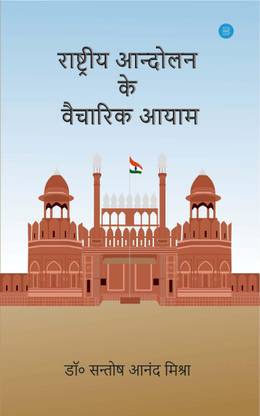Revolutionary Rash Behari Bose (25 May 1886 – 21 January 1945)
Introduction
The saga of India’s struggle for independence is woven with the sacrifices of countless valiant souls. Among these freedom fighters, the name of Rash Behari Bose is remembered with great honor and pride. He was a visionary leader who not only ignited the spark of revolution within India but also steered the movement from abroad with strategic brilliance. His foresight, global perspective, and organizational skills lent an international dimension to India’s freedom struggle.
Early Life and Education
Rash Behari Bose was born on 25 May 1886 in the village of Subaldwip in the 24 Parganas district of West Bengal. From an early age, he displayed exceptional intelligence and a deep sense of patriotism. After completing his initial education, he developed a keen interest in science and technology. He worked as a chemist and typist at the Forest Research Institute in Dehradun, but his heart always beat for the nation.
His patriotic and rebellious sentiments were shaped by the Partition of Bengal (1905) and the Swadeshi Movement. He secretly established connections with revolutionary groups like the Anushilan Samiti and Yugantar.
Beginning of Revolutionary Activities
After 1908, Rash Behari Bose fully immersed himself in revolutionary activities. He traveled secretly across the country, organizing young revolutionaries. He trained them in military tactics, bomb-making, and covert communication. He mastered the art of underground operations.
The Historic 1912 Viceroy Bomb Incident
23 December 1912 marked a significant moment in India’s independence movement. On this day, during the ceremonial procession of British Viceroy Lord Hardinge in Chandni Chowk, Delhi, a bomb was hurled at his entourage. The plot was masterminded by Rash Behari Bose, and the bomb was thrown by Basanta Kumar Biswas. Although Lord Hardinge was injured, the grandeur of British rule was shaken.
After this incident, the British authorities intensified their hunt for Rash Behari Bose. However, he evaded capture through clever disguises and constant movement. Eventually, in 1915, he escaped to Japan.
Exile in Japan and Continued Struggle
Rash Behari Bose’s move to Japan was a strategic decision. At that time, Japan was an emerging Asian power with strong anti-Western sentiments. He began organizing the Indian diaspora in Japan and gained the trust of the Japanese government and society. He married a Japanese woman, Toshiko Soma, which helped him secure residency and respect in Japanese circles.
He supported the idea of Pan-Asianism — the unity of Asian nations against Western colonialism. He believed that India’s freedom could be achieved not only through internal struggle but also with international support and pressure.
Connection with the Ghadar Movement
In 1915, the Ghadar Party planned a large-scale uprising in India, which Bose supported from Japan. He helped with arms, logistics, and communications. Unfortunately, the plan failed, and many revolutionaries were executed. Yet, Rash Behari Bose managed to escape the British. Though the British demanded his extradition, the Japanese government and Buddhist monks protected him.
Indian Independence League and the INA
During World War II, Bose gave a new dimension to the freedom struggle by establishing the Indian Independence League in 1942. He mobilized Indians across Southeast Asia, including workers and soldiers, for the cause.
In June 1942, during a conference in Bangkok, he declared the formation of the Indian National Army (INA). At the same time, he resolved to hand over its leadership to Subhas Chandra Bose. He invited Netaji to take charge, understanding that a charismatic and capable leader was now required.
This decision was a testament to his visionary thinking — stepping back himself to empower someone more suitable for the task. Under Netaji, the INA evolved into a powerful force that challenged British rule militarily.
Death and Honors
Rash Behari Bose passed away on 21 January 1945 in Tokyo, Japan. His entire life was devoted to India’s independence. The Japanese government honored him with the prestigious Order of the Rising Sun. The Indian government, too, paid homage to his invaluable contributions.
Legacy and Contribution
- Selflessness and Sacrifice – He dedicated his life wholly to the motherland.
- International Outlook – He gave the freedom movement a global platform.
- Organizational Vision – Founding the Indian Independence League and INA was a monumental step.
- Leadership Transfer – Handing over leadership to Netaji was a masterstroke in strategic thinking.
- Mobilizing the Diaspora – He unified Indians in Japan, Singapore, Malaya, and beyond into a collective force.
Conclusion
Rash Behari Bose was one of India’s brave sons, embodying sacrifice, patience, organization, and foresight. Not only was he a fearless revolutionary, but also a visionary who redefined the path of the independence struggle. His legacy echoes from Japan to India and continues to inspire generations. Truly, he was an international warrior of freedom, whose memory fills every Indian with pride.














0 Comments
Thank you